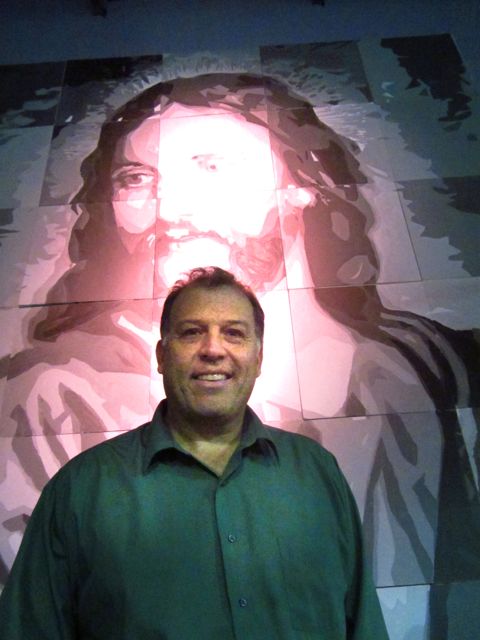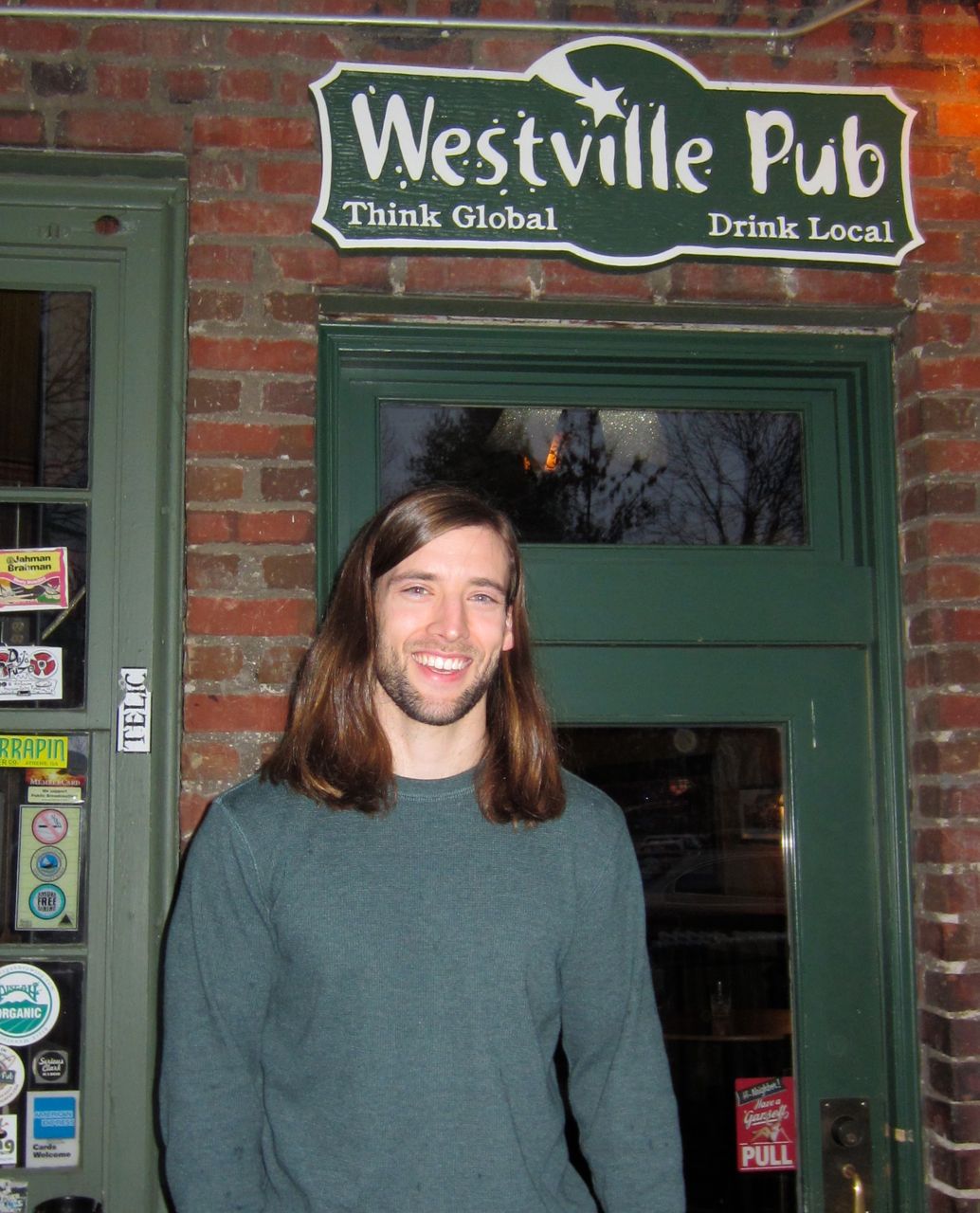Last time there was a reformation within the church, cardinals were slinging indulgences and claiming the ability to reduce people’s time in purgatory, the Bible was read in Latin, a language most didn’t understand, and if you turned from the church you were branded a heretic and faced excommunication, torture or death.
Luckily, there aren’t any people burning at the stake this time around, but just as Luther brought on a transformation to put believers in a more direct communion with scripture, independent of form or culture, so today there could be a monumental Christian reformation at hand, and Asheville is no stranger to it.
Blue Ocean Faith will hold its 2013 Southeastern Conference Thursday-Saturday, March 7-9, at the Blue Ridge Vineyard Church in north Asheville. “There are several pastors in Asheville and the surrounding area who are asking the same questions as we are,” says Ryan Bauers, Blue Ocean’s national director. According to Bauers, the Christian faith has always interpreted truth from a pre-established cultural lens; however, he says, “Blue Ocean Faith is, in essence, an attempt to strip Western or Protestant, or American or Evangelical … or right-wing culture from Jesus and offer Jesus on his own terms [and] to contextualize’ Jesus based on the culture we find ourselves in.” He also asserts, “I think there is no doubt that we are experiencing a reformation of sorts. … There are many aspects of this evolving faith, but a central one is the movement from reason to experience.”
Curious about the ideas and folks behind the conference, I asked Tom Camacho, pastor of the Blue Ridge Vineyard, about a contemporary reformation. He raised his eyebrows. “A reformation?” he said, “That’s a big word. Are things changing? Without question. And if they don’t change, we will become a completely post-Christian culture, we may already be one.” (Pictured: Tom Camacho; photos by Jordan Foltz)

Indeed, most Churches around the country can’t seem to keep the young people around, and if retention rates continue as they are, the pews will be empty in just a couple of decades. Southern Baptists estimate that 88 percent of their kids are turning from the church after high school. And many other congregations are not faring much better. Josh Mcdowell Ministry, an international faith organization, reports that 94 percent of high school graduates leave faith within two years. So what’s up with that?
As an answer to this apparently dim future for American churches, David Schmelzer, of the Greater Boston Vineyard Church, began Blue Ocean Faith, a nonprofit dedicated to keeping Jesus relevant in diverse cultural contexts. Schmelzer adopted the name from the 2005 business book Blue Ocean Strategy by W. Chan Kim — the central tenet is that, to succeed, a business must deeply perceive the needs of its constituency; and it needs to create a product that does not exist yet, thereby forming a completely new market for itself.
Schmelzer concluded that traditional churches have, by and large, not been willing to meet culture since the transition into post-modernity. Instead they have attempted to deny it, stop it in its tracks or mold it to their own beliefs, he asserts. Many churches have carved a niche based on making people either “right” or “wrong,” “in” or “out.” Schmelzer didn’t have to look hard to observe that the contemporary market for such churches was about as thriving as the market for manual typewriters.
A couple years back, when Adam Coates, pastor of West Asheville Vineyard, first came to town to start a church, he found himself hanging at the Westville Pub, trying to get to know his new neighborhood better, and looking for ways that his future church would be able to help. As he sat back and observed, what Coates saw was a community of people who loved each other. “They were taking up donations on the bar to get kids toys for Christmas who couldn’t afford them, and everyone was really joyful and warm” he says. (Pictured: Adam Coates)

“And I just thought to myself: ‘There is absolutely nothing wrong with what’s happening here. This is actually what I would want church to look like. And if there is something powerful in Jesus for these people, then I’m not going to go and start something new, I’m just going to come and be a part of this.’”
He explained, “Realizing that just rocked my world because there was no church I knew of that would admit openly that what a bar had going on was better than what a church had going on.”
Before West Asheville Vineyard moved into its own space at 717 Haywood Road, it consisted of Coates hanging out at the pub, having authentic conversations with people, and using the bar to debut his Saturday morning “Faith Experiment;” a spiritual conversation about the Gospel, open to the public, that invited input from everyone. Like other Vineyard churches and Blue Ocean Faith, Coates was in it to help the community and culture to flourish — to water an already planted garden.
“The naming end of things puts us in a certain box that cuts us off from others,” said Coates, “We see faith in Jesus as an opportunity rather than a threat. We’re not trying to live in boxes. We’re moving beyond ‘belief-ism, and moving faith beyond caring about the nominal aspects and more the heart aspects. …There are Muslims, Buddhists, or Hindus who may be relating to Jesus in some way that I don’t even understand, and if Christianity is the name they can claim for that, great. If not, that’s fine too.”
The West Asheville Vineyard is not only a space where Coates has a Sunday service. Most days of the week, it serves as a donation-based community space — no strings attached. These days you can find Lango Asheville, Odyssey of the Mind, Tae Kwon Do, and tango classes there.
Tom Camacho founded the Blue Ridge Vineyard Church in 2008. “Love in action is what the [the church] is all about,” he said. “If there is a reformation, I think the switch is going from a Christianity that’s related with a lot of human love with hooks in it to a love that looks really different. … Humans love one another through eros, which is ‘What can I get from you.” In contrast, God loves through agape. We call it ‘eternal unbroken benevolence.’”
Camacho added, “He would love you if you chose to follow him and he would love you if you didn’t.”
According to Camacho, agape is the future of Christianity. “It’s contagious,” he said. “The love of God is going to spread like leaven in a loaf and impact heart after heart after heart and set ‘em free.” Indeed, Camacho himself beamed with such charisma and love, that one could not help but to feel it rub off in his presence.
Camacho stopped short of saying that traditional churches have done anything wrong, but in talking with him, it becomes clear that their state of disrepair is actually quite inevitable. “Eros will always destroy you,” he said. Camacho pointed to it as a quantum- physical law. Pulling out a pen and paper, he explains it to me. He drew two arrows; the first one straight, the second hooked around 180 degrees to face backward. “This,” he pointed to the second arrow, “is eros, and it will eventually turn in on itself and destroy a person.” He extended the arrow yet again another 180 degrees, and again creating an inward spiral that quickly disappears in a single point on the paper.
“Eros” he said emphatically, “is sin. Self-love will kill you. When Jesus was talking about sin, he wasn’t scolding and saying ‘You bad boy!’ he was saying ‘THIS WILL DESTROY YOU!’ I came that you would have life — great life. And that is realized through living in agape.” Camacho pointed to the first arrow, which goes in only one direction: outward.
Have churches gotten caught in eros, or the love of personal gain? Coming in the form of being the most “right” or maximizing the number of converts and congregants, traditional approaches have “been very performance based,” said Camacho.
“Like capitalism?” I ask.
“Well … yep, yes. You nailed it. Paul says that people have a form of Christianity, but they deny its power. I think love is power and we all seek it.”
In essence, the traditional approach has been to either prescribe or proscribe culture, rather than to meet culture and find ways to help it flourish, Bauers says. “Agape frees us to love and serve others rather that have to be more right or be better than anyone else.”
Perhaps the current reformation goes deeper than just the crumbling of what he calls “Red Ocean” or traditional churches, and the rise of “Blue Ocean” faith. The attempt to maintain relevance and success as evidenced in the rise of mega-churches, or competing for congregants, has analogous expressions within our wider socioeconomic milieu as well. At one time, people woke up and realized that the Inquisition was not very useful. Today, people around the country are seeing that living in a preset cultural box is not very useful, or perhaps that Wall Street is not very useful. What we see Adam Coates, Tom Camacho, and Ryan Bauers offering to the world evidences a wider market trend toward a holistic approach to doing life.
“There are spiritual forces of darkness that are consuming to people, and we knowingly or unknowingly submit to those forces of anti-kingdom, anti-unity, anti-compassion,” said Coates. “And the good fight of faith is to expel those forces from infringing on our lives. Houses of God can become houses of darkness and that is what we should be standing up against.”
The Southeasten Regional Blue Ocean Conference will be held at the Blue Ridge Vineyard Church, 501 Stone Ridge Blvd, Asheville, 28804 from Thursday, March 7, through Saturday, March 9. More information, visit http:// southeastcoastborc.eventbrite.com.
For more information about West Asheville Vineyard visit: westashevillevineyard.org. For more on Agape and Blue Ridge Vineyard, visit: blueridgevineyard.org.



https://www.youtube.com/watch?v=PD3kTsbA9A8
The loudspeaker spoke up and said, “Christianity is stupid. Communism is good. Give up.”